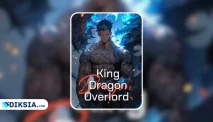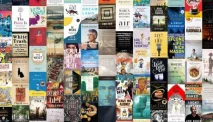Petik.net - Chinese novels, especially web novels, have been gaining a new wave of global popularity in recent years. Thanks to the internet and digital platforms, millions of overseas readers can access and enjoy the diverse and rich stories created by Chinese authors.
In this article, we will explore the features, genres, platforms, and trends of Chinese novels, as well as some of the challenges and opportunities they face in the international market.
What are Chinese novels?
Chinese novels are a broad category of literary works that originate from China. They can be divided into two main types: traditional novels and web novels.
Traditional novels are usually published in print or digital formats, and have a fixed length and structure. They are often written by professional or semi-professional authors, and undergo a process of editing and quality control before being released to the public.
Some examples of traditional novels are The Three-Body Problem by Liu Cixin, Wolf Totem by Jiang Rong, and Red Sorghum by Mo Yan.
Web novels are a relatively new phenomenon that emerged in the early 2000s with the development of online platforms that allow authors to publish their works directly to readers. Web novels are usually serialized, meaning that they are updated with new chapters on a regular or irregular basis.
They are often written by amateur or part-time authors, and have a high degree of interaction with readers through comments, ratings, feedback, and donations.
Some examples of web novels are The King's Avatar by Butterfly Blue, Coiling Dragon by I Eat Tomatoes, and My Disciple Died Yet Again by Mrs. Ago.
What are the genres of Chinese novels?
Chinese novels cover a wide range of genres and themes, reflecting the diverse interests and preferences of Chinese readers and writers. Some of the most popular genres are:
- Wuxia: Literally meaning “martial heroes”, this genre features stories of martial arts, adventure, justice, and romance in ancient or fantasy China. Wuxia novels often draw inspiration from Chinese history, folklore, mythology, and philosophy. Some examples of wuxia novels are The Legend of the Condor Heroes by Jin Yong, The Smiling Proud Wanderer by Jin Yong, and Crouching Tiger, Hidden Dragon by Wang Dulu.
- Xianxia: Literally meaning “immortal heroes”, this genre is a subgenre of wuxia that focuses on stories of cultivation, magic, demons, immortals, and sages in a fantastical version of China. Xianxia novels often incorporate elements from Taoism, Buddhism, and other religions and beliefs. Some examples of xianxia novels are A Will Eternal by Er Gen, Against the Gods by Mars Gravity, and I Shall Seal the Heavens by Er Gen.
- Xuanhuan: Literally meaning “mysterious fantasy”, this genre is a subgenre of xianxia that expands the scope of the setting and elements beyond China to include other cultures, worlds, races, and systems. Xuanhuan novels often mix and match various genres such as sci-fi, horror, comedy, romance, etc. Some examples of xuanhuan novels are Coiling Dragon by I Eat Tomatoes, Desolate Era by I Eat Tomatoes, and Tales of Demons and Gods by Mad Snail.
- Urban: This genre features stories set in modern or near-future China, with themes such as romance, comedy, thriller, mystery, supernatural, etc. Urban novels often reflect the social issues and trends of contemporary China. Some examples of urban novels are Release that Witch by Er Mu, The King's Avatar by Butterfly Blue, and My Wife is a Beautiful CEO by Cabbage Flatbread.
- Historical: This genre features stories set in historical periods or events of China or other countries, with themes such as war, politics, intrigue, biography, etc. Historical novels often aim to portray the historical facts and characters with accuracy and realism. Some examples of historical novels are Romance of the Three Kingdoms by Luo Guanzhong, The Dream of the Red Chamber by Cao Xueqin, and Wolf Totem by Jiang Rong.
What are the platforms for Chinese novels?
Chinese novels are mainly distributed through online platforms that provide various services for authors and readers. Some of the most popular platforms are:
- Qidian: Founded in 2002, Qidian is one of the earliest and largest web novel platforms in China. It hosts over 1 million works and 10 million authors, covering all genres and categories. It also operates several sub-brands such as Qidian International, Qidian Female Webnovel, Qidian Comics, etc. Qidian is owned by China Literature Ltd., a subsidiary of Tencent Holdings Ltd., one of the largest internet companies in China.
- Webnovel: Also known as Qidian International, Webnovel is an overseas branch of Qidian that focuses on translating Chinese web novels into English and other languages. It also hosts original works by non-Chinese authors. It has over 100 million users and 200,000 works, covering genres such as fantasy, romance, sci-fi, etc. Webnovel also has a mobile app and a website that allow users to read, comment, vote, and donate to their favorite works and authors.
- Tapread: Tapread is another overseas branch of Qidian that specializes in translating Chinese web novels into English. It has over 10 million users and 2,000 works, covering genres such as xianxia, wuxia, urban, etc. Tapread also has a mobile app and a website that allow users to read, comment, vote, and donate to their favorite works and authors.
- Flying Lines: Flying Lines is an independent web novel platform that focuses on translating Chinese web novels into English. It has over 1 million users and 500 works, covering genres such as romance, bl, historical, etc. Flying Lines also has a mobile app and a website that allow users to read, comment, vote, and donate to their favorite works and authors.
- Novel Spread: Novel Spread is an independent web novel platform that hosts both Chinese and non-Chinese works in various languages. It has over 500,000 users and 10,000 works, covering genres such as fantasy, sci-fi, horror, etc. Novel Spread also has a mobile app and a website that allow users to read, comment, vote, and donate to their favorite works and authors.
What are the trends of Chinese novels?
Chinese novels are constantly evolving and innovating to meet the changing demands and tastes of readers and writers. Some of the current trends are:
- Diversification: Chinese novels are becoming more diverse in terms of genres, themes, styles, formats, and audiences. New genres such as litrpg (literary role-playing game), cultivation chat group (a parody of xianxia), transmigration (a subgenre of reincarnation), etc. are emerging and gaining popularity. New themes such as esports, gaming, business, entertainment, etc. are also being explored and integrated into the stories. New styles such as short stories, flash fiction, poetry, etc. are also being experimented and adopted by some authors. New formats such as audio books, comics, animation, etc. are also being developed and produced to cater to different preferences and platforms. New audiences such as female readers, LGBTQ+ readers, young readers, etc. are also being targeted and served by some platforms and authors.
- Globalization: Chinese novels are becoming more global in terms of reach, influence, and collaboration. More overseas readers are discovering and enjoying Chinese novels through translation platforms and social media. More overseas platforms are licensing and distributing Chinese novels to their local markets. More overseas adaptations are being made based on Chinese novels, such as movies, TV shows, games, etc. More overseas authors are learning from and collaborating with Chinese authors, creating cross-cultural works and exchanges.
- Professionalization: Chinese novels are becoming more professional in terms of quality, standards, and recognition. More authors are improving their writing skills, research abilities, and creativity through training, education, and feedback. More platforms are enhancing their editing, marketing, and legal services to ensure the quality and rights of the works and authors. More awards and honors are being established and granted to recognize the achievements and contributions of the works and authors.
What are the challenges and opportunities for Chinese novels?
Chinese novels face various challenges and opportunities in their development and expansion in the domestic and international markets. Some of them are:
Challenge
1. Piracy and plagiarism
Piracy and plagiarism are rampant problems that affect the income and reputation of Chinese novel platforms and authors. Many unauthorized websites copy or steal the works from the original platforms without permission or compensation.






